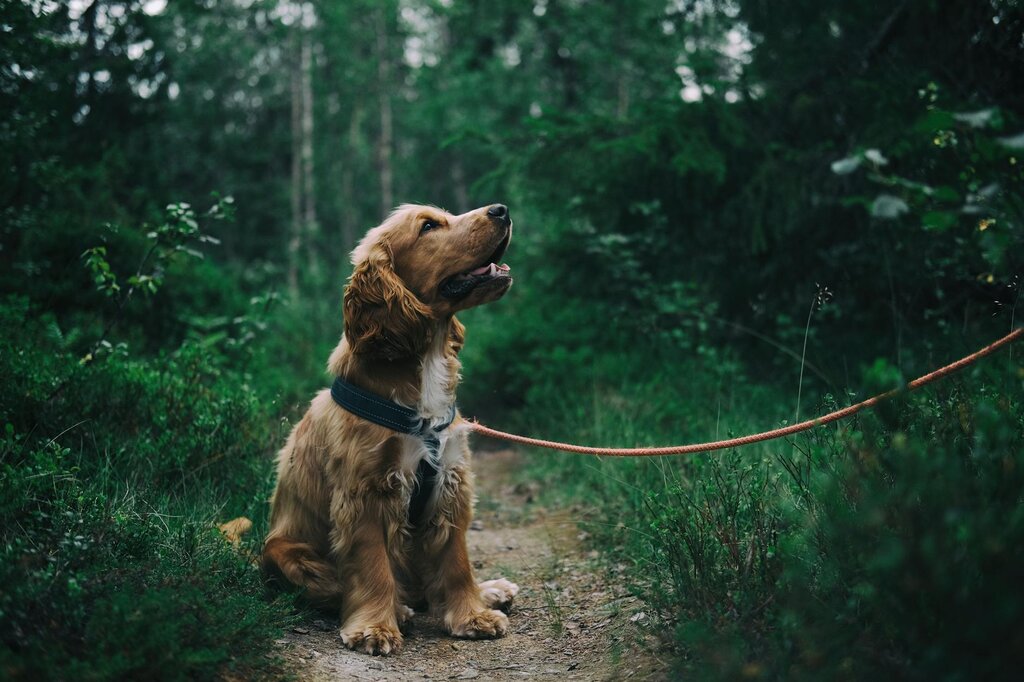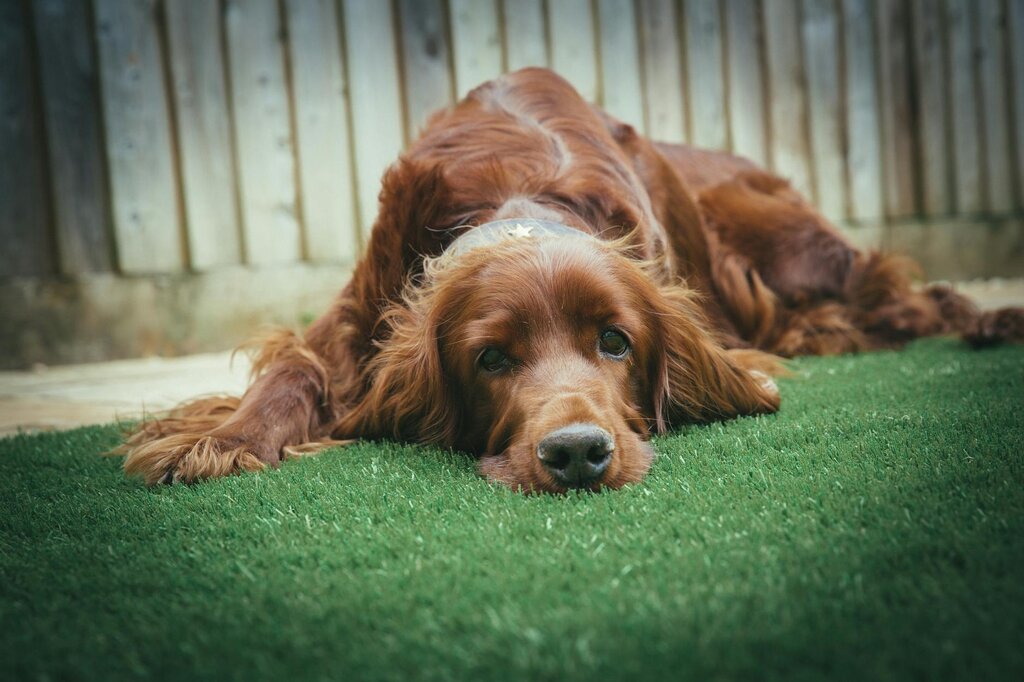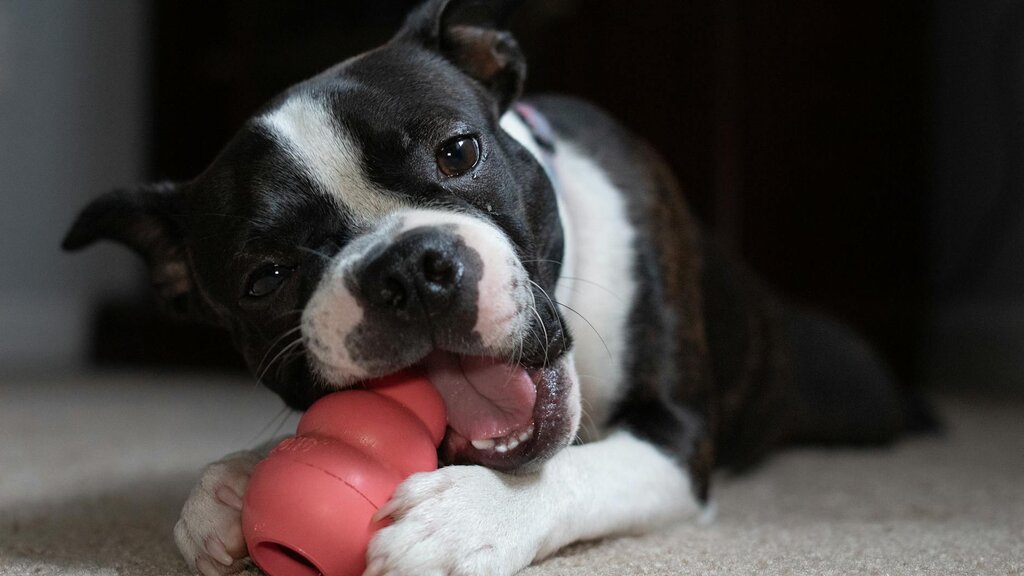Last Updated: 29/03/2025
Why Do Dogs Eat Poop?
Is your dog eating poop? Find about the most common causes and solutions from our vet squad
Author: Dr Carla Paszkowski BVSc (Hons)
Reading Time: 24 minutes - medium read
Coprophagia, or the consumption of faeces, is a common and often perplexing behaviour in dogs and puppies. This unpleasant habit can leave pet owners feeling disgusted and concerned. While it may seem strange or even gross, there are underlying reasons why dogs might engage in this behavior.
In this article, we'll explore the potential causes of coprophagia, including medical and dietary factors. We'll also provide practical tips and strategies you can use at home to help your dog overcome this habit.
The Science Behind Coprophagia
Coprophagia, the act of consuming faeces, is a behaviour commonly observed in dogs and can stem from various causes, both normal and abnormal. Some dogs eat faeces instinctively as part of natural hygiene or as a learned behaviour. Others may be drawn to the scent or nutritional content of faeces. Medical factors such as dietary deficiencies, malabsorption, parasites, or diabetes can also contribute, while behavioural triggers like boredom, attention-seeking, or anxiety may play a role.
Research suggests this behaviour may have evolutionary roots. Wolves have been observed eating faeces in their dens, likely to prevent the spread of parasites and maintain hygiene. Domestic dogs may have inherited this instinct, using it as a way to protect their environment.
For nursing mothers, cleaning up after their pups is a natural and beneficial behaviour, aiding in digestion and immune system development. Puppies may mimic their mothers, or they may consume faeces to introduce healthy gut bacteria. Some outgrow this habit, while others continue into adulthood, possibly due to the high nutrient content of puppy faeces. Probiotics can sometimes help support digestive balance and reduce the urge.
While coprophagia is often normal, many owners find it unpleasant. Identifying and addressing any underlying medical or behavioural causes can help, but research suggests that training or commercial preventatives may have limited success in stopping the behaviour entirely.
Facts About Dogs Who Eat Poop
- 16% of dogs exhibit recurrent coprophagia (more than 6 times).
- 23% of dogs eat faeces at least once.
- Coprophagic dogs can be house trained as easily as a non-coprophagic dogs.
- Dogs on any diet or at any age can be coprophagic.
- Coprophagic dogs are more likely to be considered "greedy" eaters.
- Coprophagy is predominantly of fresh stools, no more than 2 days old.
- Coprophagic behaviour is not easily changed and will often persist despite intervention attempts.
- There is no link associated with age, gender or neutering status
- Coprophagia is more likely to occur in multi-dog households.
- Dogs from the terrier and hound group are the most likely to be coprophagic, with Shetland Sheepdogs being overrepresented and Poodles being least likely.

Reasons Why Dogs Eat Poop
There may be a few reasons why your dog is indulging in this gag-worthy habit. Not every dog eats poop for the same reason, so it's important to seek veterinary attention if you can't find a solution at home.
What Are The Risks Of Dogs Eating Poo?

While dog's eating their own poo is generally not harmful if the faeces consumed are from a healthy dog and free of parasites, there are potential risks associated with this behaviour. Here are a few:
Parasitic Infections: Dog poo can contain parasites like roundworms, hookworms, and whipworms. If a dog eats faeces from another dog that's infected, it can contract these parasites. While there is evidence that most faeces consumed in less than two days post being deposited will have reduced numbers of infections eggs or larvae, this can still be a concern. Especially if your dog consumes older faeces.
Bacterial Infections: Faeces can contain harmful bacteria such as E. coli, Salmonella, and Campylobacter, which can cause gastrointestinal upset and other health issues. Many of these bacteria are immediately infectious, so eating fresh faeces cannot reduce the risk posed by these. Some of these can cause severe illness requiring hospitalisation and can pose a health risk to humans as well.
Transmission of Diseases: Some diseases, such as parvovirus and distemper, can be spread through faeces. If a dog consumes faeces from a dog infected with these diseases, it could potentially become infected as well. Dogs that have not been regularly vaccinated or puppies not yet fully vaccinated are at an increased risk of acquiring these diseases through ingestion of faeces.Many transmissible diseases that aren't parasitic or bacterial, are viral, and some animals can act as carriers for these viruses. They may not show symptoms of illness, but instead may shed the virus in their faeces, affecting other dogs through ingestion of the faeces. Not all viruses are vaccinated against and could potentially cause serious illness in your dog.
Ingestion of Toxins: If a dog consumes faeces from an animal that has ingested poison or toxins, it can also ingest those harmful substances. Toxins may be excreted in urine or faeces and toxins that may not have been absorbed during ingestion, which could potentially leave it available for the dog that eats the affected faeces.Similarly, medications may be excreted in faeces that could be picked up from eating the faeces of pets being treated. While it is not common, cases have occurred where a dog has become sick from ingesting medications not intended for them from the faeces of other animals, such as thyroid medications or chemotherapy medications.
Behavioral Issues: While not a health risk per se, coprophagia can become a hard-to-break habit and may be associated with other behavioural problems. Some dogs that start out eating faeces as puppies may grow to like the taste, making it a challenge to deter them from eating faeces. The behaviour, which may have started out of curiosity, can also be accidentally reinforced by owners, making your dog more likely to repeat the behaviour.
If your dog is engaging in coprophagia, it's important to consult with a veterinarian to rule out any underlying health issues and to discuss ways to discourage this behaviour.
How To Stop Your Dog Eating Poo

When To Seek Veterinary Help
Any time you are concerned about your dog's health, it's best to seek out a consultation with your vet. Coprophagia isn't always a behavioural issue and can be the result of an underlying health condition. Addressing the underlying health condition promptly will provide relief for your dog and stop the problem before it becomes a habit.
Because coprophagia can be a normal behaviour in dogs, some key indicators for seeking a veterinary consultation are:
- The sudden presentation of coprophagia in an adult dog.
- When it is accompanied by other signs of being unwell.
- If it seems to be appearing out of normal context, e.g. a mother cleaning pups, a curious puppy, or cleaning the den.
- Eating the faeces of other dogs, or from a specific dog.
- If the behaviour persists despite initial intervention.
Above all, if you are worried about your dog's health, always consult your vet, as excessive poop-feasting could be an indicator of an underlying health issue. It can also be a normal behaviour or behavioural problem and can often be a very difficult habit to break despite intervention. Starting to discourage the behaviour as soon as possible will provide the most successful outcome. You can always reach out to a reputable trainer or behaviourist if you are struggling.
At the end of the day, eating a little bit of poo is not generally dangerous and often normal. If it's becoming an excessive habit, try following our tips above and hopefully your pup's diet will be 'poop'-free in no time!
Further Reading
Want to read more? Check out our other articles:

